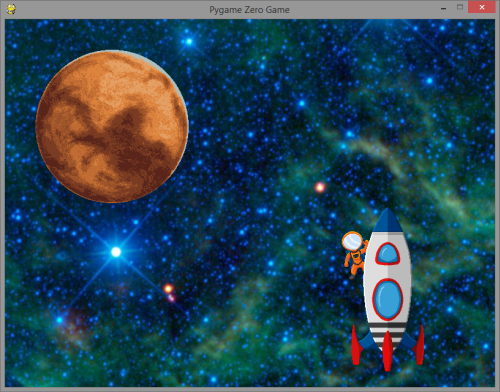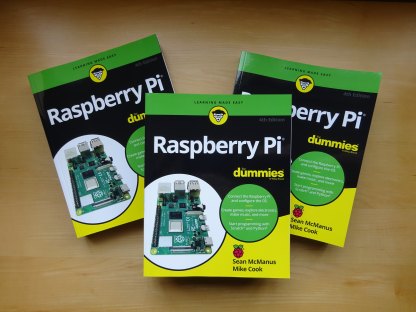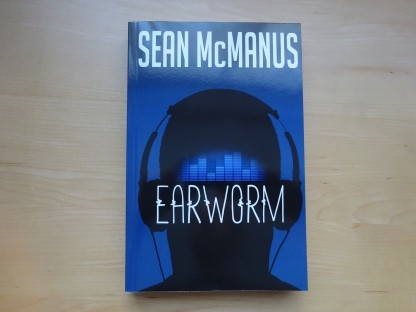
100 Top Tips: Microsoft Excel
Power up your Microsoft Excel skills with this powerful pocket-sized book of tips that will save you time and help you learn more from your spreadsheets.
26 October 2018
You can now download a free 56 page sampler of my Python programming book, Mission Python. The book shows you how to build a space adventure game using Python and Pygame Zero.
Here are three reasons you should download this sampler now:
If you have any concerns about software compatibility, this is also a risk-free way to check the software and the final project will work on your set-up. The book provides instructions for the Raspberry Pi and Windows, and readers have been in touch to say they've got it working on a Mac. I'll share more tips on compatibility and getting everything working in my next blog post, but if you have any queries or concerns, feel free to leave a comment below and I'll do my best to help.
Find out more about Mission Python in the launch day blog post here. Discover places you can buy the book here.

The spacewalk simulator from Chapter 1 of Mission Python
Permanent link for this post | Blog Home | Website Home | Email feedback
16 October 2018
I am delighted to say that my latest book Mission Python has just been published. The book shows readers how to use Python and the Pygame Zero library to build a space adventure game. The game runs on a Raspberry Pi or Windows PC, using free software. We've provided all the images and sounds you need as a downloadable file.
Here's a short video showing the game in action (dramatic music added for the video):
There are several ways to enjoy the book. Some readers will want to play and solve the game first to avoid spoilers, and then use the book to understand how it works. (I have minimised spoilers where possible, but readers might notice some clues when they study the code). Other people might want to build the game, chapter by chapter, either by typing in the code or by using my example listings. At the end of the book, their finished game will be their reward. Still others might want to use the game as a starting point for their own customisations.
I've built in customisation opportunities that should enable every reader to do something unique with the game. Some readers might just want to put their friends' names into the game, and hack the text descriptions. Others will seize the opportunity to design their own room and put it into the game, add a new corridor, or even redesign the map entirely. For graphic artists who are looking for a portfolio project, there's the opportunity to reskin the whole game by replacing our graphics with new image files. More ambitious coders might want to take the engine for the game and replace the maps, descriptions, images and puzzles to create an entirely new game set in a new world. Most chapters include Training Missions, which are small exercises to test your knowledge, with answers at the end of the chapter.
My author copies of Mission Python are here!
When writing the book, I often thought of the kinds of things I enjoyed programming when I was at school. Back then, I was programming an Amstrad CPC computer and I learned a lot from studying listings in magazines and books. I would have loved a book like this to guide me through building a whole game. There are lots of great Python books out there, but the examples tend to be limited to a couple of pages to demonstrate a coding feature. Mission Python provides a single in-depth worked example that allows readers to really get their teeth into a substantial coding project. The program gradually builds, chapter by chapter, in digestible chunks, so readers see the game come together in a similar way to how I did when I first built it.

The game featured in Mission Python is called Escape. Here is one of the rooms from the game.
You can see some more screenshots of the game in my previous blog post here.
The book is printed in full colour throughout, and produced to the high standards you would expect from the publisher NoStarch. Thanks to the team who worked on this title including the editors Liz Chadwick and Riley Hoffman, NoStarch CEO Bill Pollock, and Rafael Pimenta who did such a fabulous job of creating the game art. Tech editor Dan Aldred helped test the listings, and Daniel Pope created Pygame Zero which I'm using for images and sounds in this project.
I'll be sharing some more insights into the book and some extra resources for readers too over the coming weeks, so keep an eye on this blog or follow me on Twitter for updates. You can find links to order the book here, and more information on the book at its webpage here.
Permanent link for this post | Blog Home | Website Home | Email feedback
© Sean McManus. All rights reserved.
Visit www.sean.co.uk for free chapters from Sean's coding books (including Mission Python, Scratch Programming in Easy Steps and Coder Academy) and more!

Power up your Microsoft Excel skills with this powerful pocket-sized book of tips that will save you time and help you learn more from your spreadsheets.

This book, now fully updated for Scratch 3, will take you from the basics of the Scratch language into the depths of its more advanced features. A great way to start programming.

Code a space adventure game in this Python programming book published by No Starch Press.

Discover how to make 3D games, create mazes, build a drum machine, make a game with cartoon animals and more!

Set up your Raspberry Pi, then learn how to use the Linux command line, Scratch, Python, Sonic Pi, Minecraft and electronics projects with it.

In this entertaining techno-thriller, Sean McManus takes a slice through the music industry: from the boardroom to the stage; from the studio to the record fair.